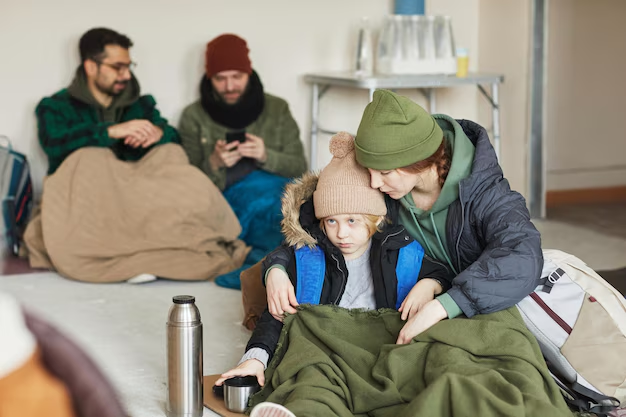Explore Homeless Shelters and Support Systems in Austin: Your Essential Guide
In the heart of Austin, Texas, where the lively music scene and entrepreneurial spirit thrive, there is another bustling corner often overlooked—the network of homeless shelters and support services essential for those facing hard times. Whether someone is newly homeless or looking for more permanent assistance, knowing where to start can make all the difference in finding the right help at the right moment.
Finding the Right Shelter for Your Needs
Austin offers a range of shelters that cater to different populations, from families to single adults, and even programs dedicated to veterans. Here's a quick guide to some key shelters:
- ARCH (Austin Resource Center for the Homeless): Centrally located and run by Front Steps, ARCH provides basic services such as meals, showers, and overnight shelter.
- Salvation Army Downtown Shelter and Social Services Center: Offers comprehensive support, including emergency shelter, meals, and case management.
- Caritas of Austin: Supports people out of homelessness through housing, food, education, and employment assistance.
While these organizations provide immediate relief, understanding the comprehensive web of support services available in Austin can be a game-changer for those looking to rebuild.
Expanding Your Support Network
Beyond shelters, there are several government aid programs and community resources that play a crucial role in supporting individuals on the road to stability. For example:
- SNAP (Supplemental Nutrition Assistance Program): Helps individuals and families buy the food they need for good health.
- Medicaid: Provides health coverage to eligible low-income adults, children, and people with disabilities.
- City of Austin's Rental Assistance Program: Offers temporary assistance with rent for eligible individuals and families.
Financial and Educational Opportunities
Stability isn't just about finding a place to sleep. It's also about creating opportunities for sustainable living through financial and educational support. Those looking to turn their lives around may consider exploring:
- Debt Relief Options: Start by reaching out to non-profit credit counseling organizations, which can offer guidance on consolidating or reducing debt.
- Credit Card Solutions: Some credit card companies offer hardship programs that can provide temporary relief, such as lowered payments or interest rates.
- Educational Grants and Scholarships: Returning to school or gaining new skills can open up employment opportunities. Look into federal Pell Grants, local community college scholarships, and trade school funding options.
These resources can empower individuals to regain trust in their ability to manage their finances, build credit, and invest in their education.
Conclusion: A Path Forward
Navigating homelessness and its challenges requires courage, resilience, and an intricate understanding of the resources available. In Austin, a city renowned for its community spirit and innovation, these resources are designed not just to provide a safety net, but to uplift and create pathways to self-sufficiency.
Whether you're assisting someone else or searching for help yourself, remember that reaching out is the first, critical step to reclaiming your life. Below is a snapshot of support options to consider:
🏠 Shelter & Basic Needs:
- ARCH
- Salvation Army Downtown Shelter
- Caritas of Austin
📑 Government Aid Programs:
- SNAP
- Medicaid
- Austin’s Rental Assistance
💡 Financial Support & Education:
- Debt relief through non-profit counseling
- Credit hardship programs
- Educational grants and scholarships
In the spiral of life’s challenges and changes, Austin's vast network of support stands ready to guide, assist, and inspire those in need.

